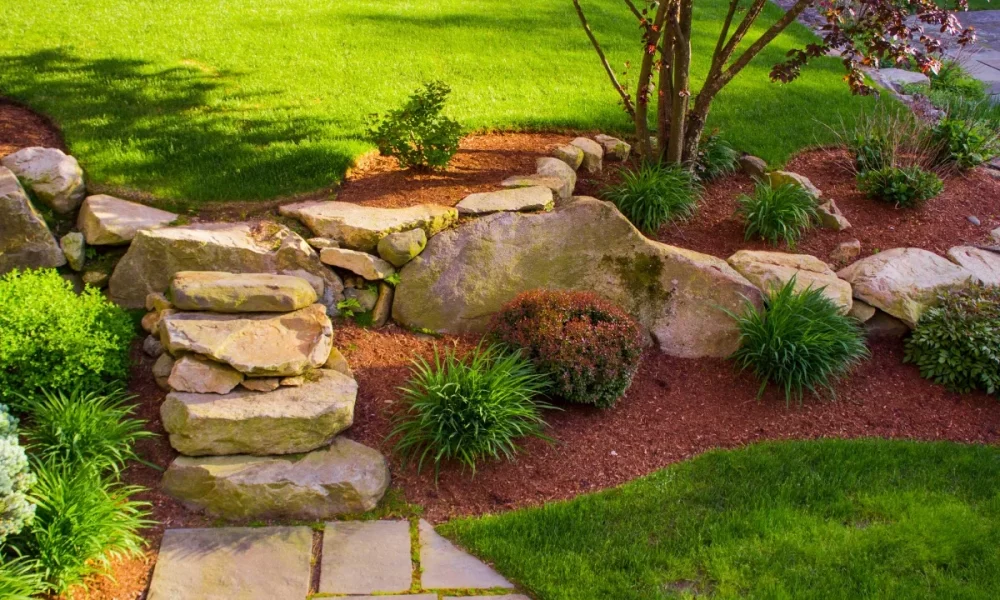
Rock vs. Mulch: Choosing the Best Option for Your Plant Beds
When it comes to landscaping and gardening, one of the key decisions you’ll need to make is what type of material to use in your plant beds. Two popular choices are rocks and mulch, each with its own set of advantages and disadvantages. In this blog post, we’ll explore the differences between rock and mulch and help you decide which option is best for your garden.
Rock:
Advantages:
- Longevity: Rocks are incredibly durable and can last for many years without needing to be replaced. This makes them a low-maintenance option for plant beds.
- Weed Control: When used with landscape fabric, rocks create a barrier that prevents weeds from germinating and growing. This can significantly reduce the amount of time and effort spent on weeding.
- Drainage: Rocks allow water to drain quickly, which can be beneficial for plants that prefer drier soil conditions.
- Aesthetics: Rocks come in a variety of shapes, sizes, and colors, allowing you to create a customized look for your plant beds.
Disadvantages:
- Heat Retention: Rocks can absorb and retain heat, which may increase soil temperature and affect plant growth, especially in hot climates.
- Limited Nutrients: Unlike organic mulches, rocks do not decompose and add nutrients to the soil over time. This means you may need to supplement with fertilizer more frequently.
Mulch:
Advantages:
- Soil Health: Organic mulches, such as wood chips or shredded bark, break down over time, adding organic matter to the soil and improving its structure and fertility.
- Moisture Retention: Mulch helps retain moisture in the soil, reducing the need for frequent watering and helping plants withstand drought conditions.
- Temperature Regulation: Mulch acts as insulation, helping to moderate soil temperature and protect plant roots from extreme heat or cold.
- Weed Suppression: Mulch can help suppress weed growth by blocking sunlight and preventing weed seeds from germinating.
Disadvantages:
- Replacement: Organic mulches decompose over time and will need to be replenished periodically, typically every 1-3 years.
- Color Fade: Mulch color over time will fade.
Choosing the Best Option:
Ultimately, the decision between rock and mulch will depend on your specific gardening needs, preferences, and budget. If you prioritize low maintenance and longevity, rock may be the best option for you. On the other hand, if you value soil health, moisture retention, and temperature regulation, mulch may be the better choice.
In some cases, a combination of both rocks and mulch may be ideal. For example, you could use rocks in areas where weed control and drainage are paramount, such as around shrubs or in high-traffic areas, and use mulch in areas where soil health and moisture retention are more important, such as around vegetable gardens or flower beds.
By carefully considering the advantages and disadvantages of rock and mulch, you can select the option that will best meet the needs of your plants and help you create a beautiful and thriving garden.
Experience Pinter’s
Share This








